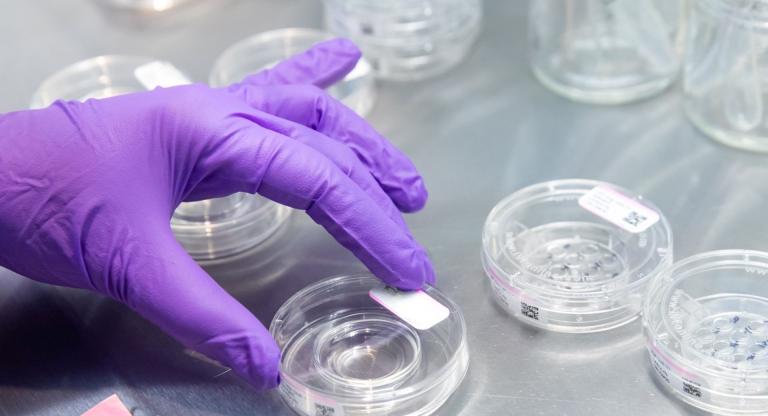Contraception during perimenopause: a Q&A with Dr. Lindsay Shirreff

The average age of menopause in Canada is 51 years, but for some, symptoms can appear earlier.
This transition period, ranging from four to eight years, is known as perimenopause. It can include menstrual cycle irregularity and symptoms of menopause, including mood changes, headaches, hot flashes and sleep disruption.
The menopause clinic at Mount Sinai Hospital offers thorough evaluation and specialized treatment for perimenopausal and menopausal women; the treatment offered depends on patient symptoms, and medical and family history. We spoke with Dr. Lindsay Shirreff, Obstetrician and Gynaecologist at Mount Sinai Hospital, to learn more about why contraception is still an important consideration for those experiencing perimenopause.
Why does contraception for perimenopausal people matter?
There may be people who do not want to become pregnant in midlife, and contraception is used to prevent pregnancy. Many contraceptive methods exist and each has a different efficacy and level of associated risk. People who are sexually active and who want to avoid pregnancy should use a contraceptive method until they reach menopause, which is one year after a last menstrual period.
Can I still get pregnant during perimenopause?
It is still possible to become pregnant during perimenopause. Although fertility is lower in perimenopausal women, ovulation and menstruation still occur.
What guidance does the menopause clinic provide on contraception?
At the menopause clinic, we typically recommend contraception for people who are sexually active and do not wish to become pregnant. Some contraception methods carry more risk than others as someone ages. For example, an oral combined contraceptive pill may increase the risk of blood clot in the legs or lungs because of its estrogen component. This risk increases with age.
On the other hand, perimenopausal people may be suffering from abnormal uterine bleeding and/or symptoms of menopause. Some methods of contraception can be used for both contraception, and to treat perimenopausal symptoms. Perimenopausal people should speak to their healthcare provider to determine the best method of contraception for them.
I’m currently using contraception. When should I stop?
Contraception can be stopped when someone enters menopause. It may be difficult to know if you are in menopause because some forms of contraception can create scheduled periods, and certain others can cause some patients to lose their period altogether. Guidelines differ, but people can usually stop contraception between 50 to 55 years old. Individuals should discuss the recommended timing of stopping contraception with their family doctor.
What advice do you have for women who suspect that they might be experiencing symptoms of perimenopause?
At our clinic, we acknowledge that patients with perimenopause may experience all of the symptoms of menopause but may be simultaneously suffering from heavy periods or abnormal uterine bleeding. It is important for people in perimenopause to know that there are treatments available for common menopausal symptoms such as hot flashes and night sweats, and that they do not necessarily need to wait for menopause to seek these out.
Individuals wishing to make an appointment with the menopause clinic must first receive a referral from their primary care physician. Learn more about the Mount Sinai Hospital menopause clinic.












